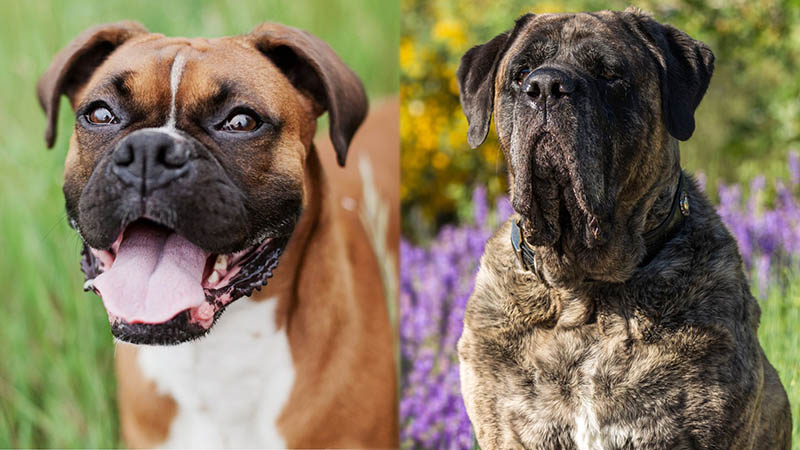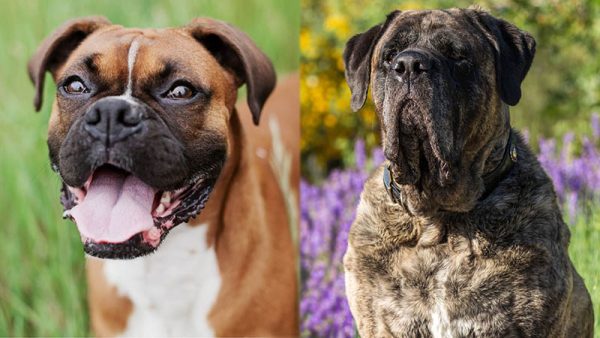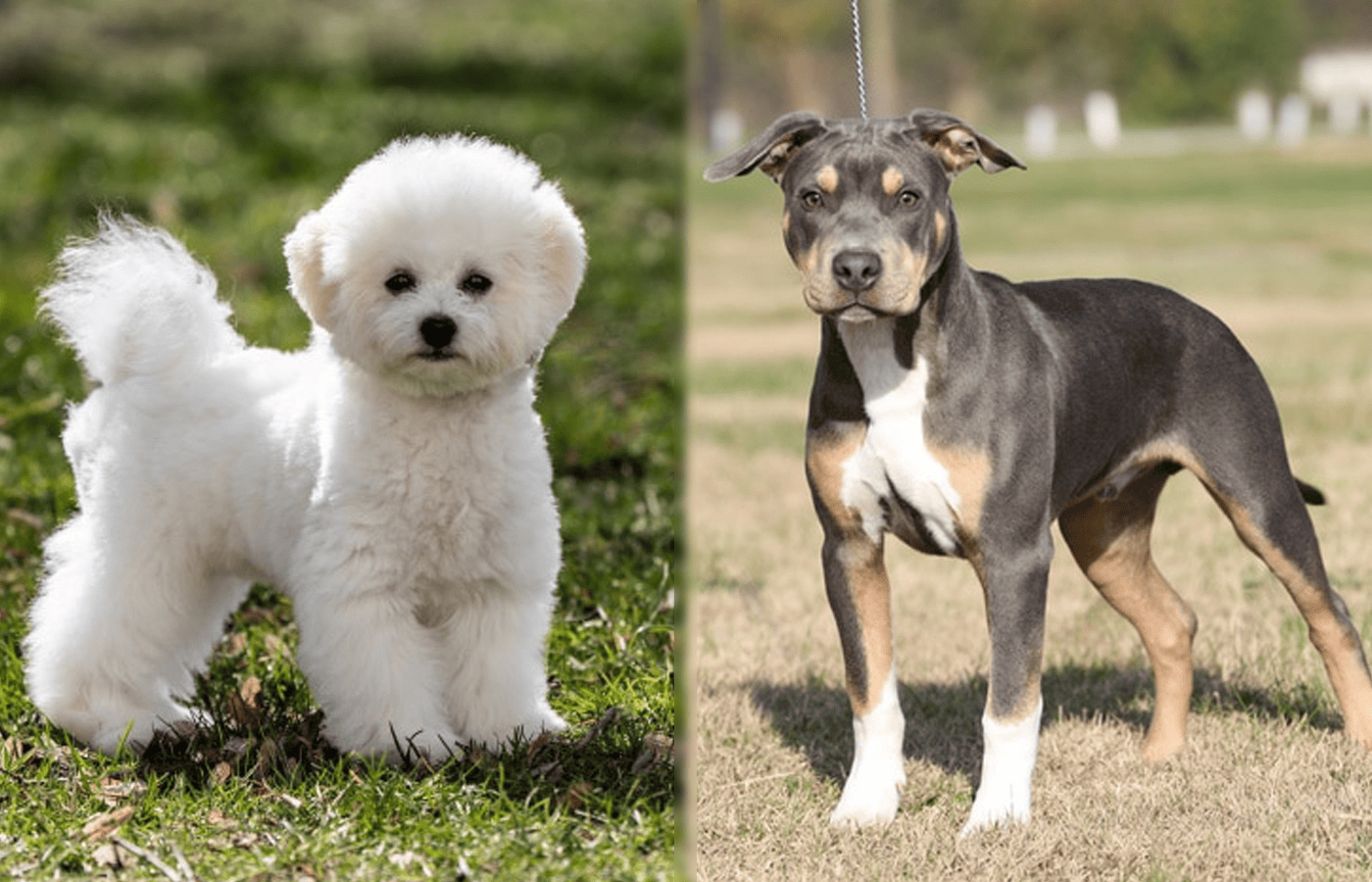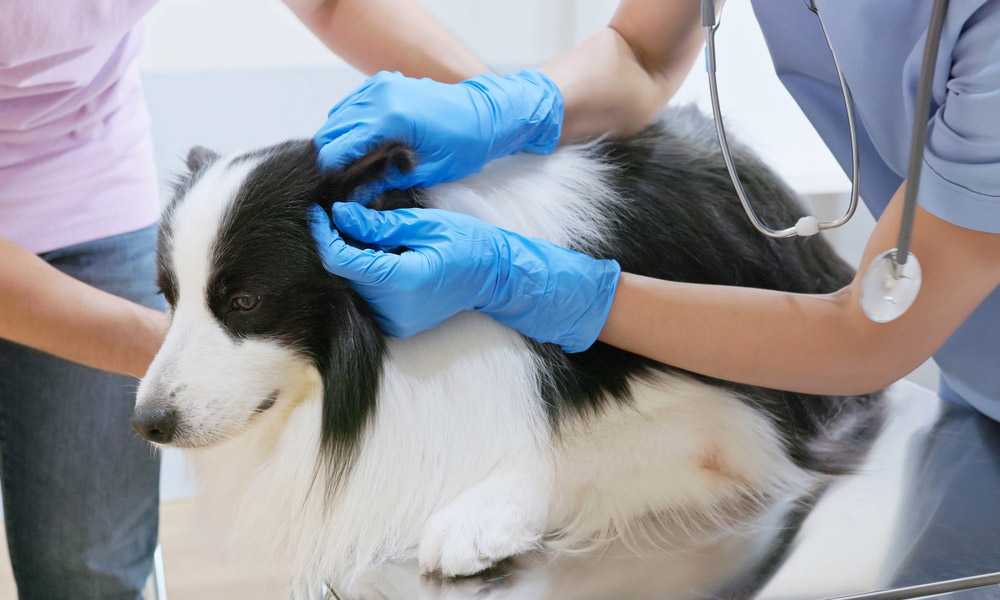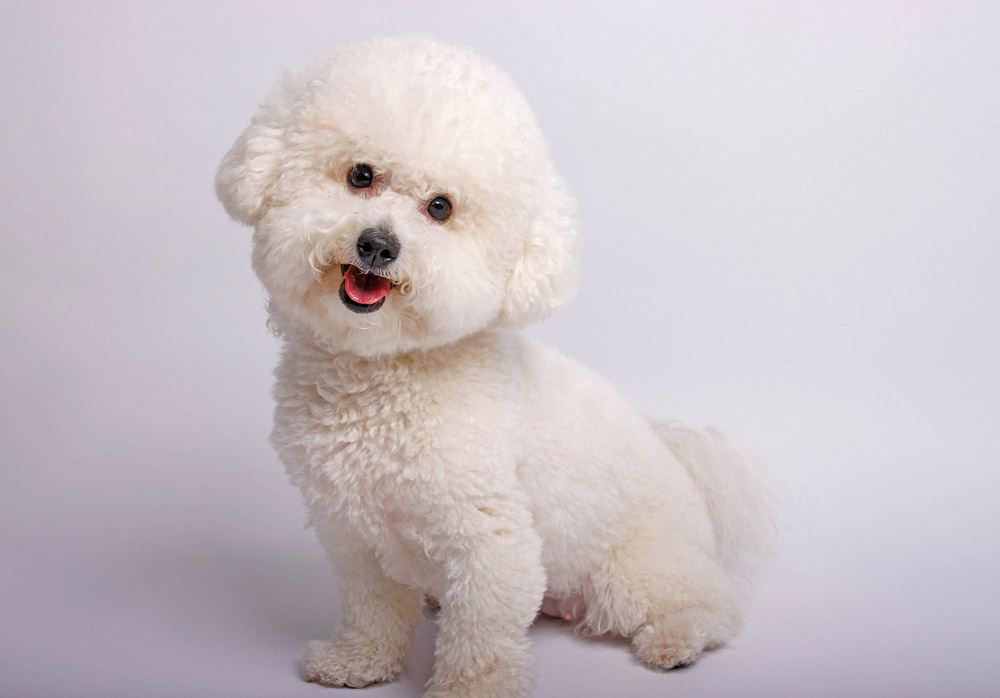Click Below to Skip Ahead
The Boxer Mastiff, known affectionately as the Boxmas, is a cross between the Boxer and the Mastiff. This is a large-breed dog that is well known for its full-blown personality. They are active and fun-loving, and while it might not be the best choice for beginning pet owners, it’ll do well in an active family looking for a loyal dog with enough personality to spare.
It’s also important to note that though these dogs are gentle and usually well-behaved, they have a protective streak and will protect their families if they feel they are in danger. Training and socialization are imperative when your Boxmas is still a puppy. The Boxer Mastiff is also a fairly new hybrid, which means you need to know as much as you can about the mix before you decide to give one a forever home. We’ll take you through everything we know about the Boxer Mastiff mix in the guide below.
Breed Overview
Height:
21 to 36 inches
Weight:
65 to 170 pounds
Lifespan:
6 to 12 years
Colors:
Brindle, fawn, and other colors
Suitable for:
Active families who are looking for a large dog, not for first-time pet owners
Temperament:
Good-natured, active, friendly, headstrong, has a protective streak
The Boxer Mastiff mix is a crossbreed of a Boxer and a Mastiff. Boxers are favorites among pet lovers worldwide, and Mastiffs have long been known to be gentle giants. Finding a breeder isn’t as hard as you might think; even though the hybrid canine is new, it’s still quite popular.
Boxer Mastiff Puppies
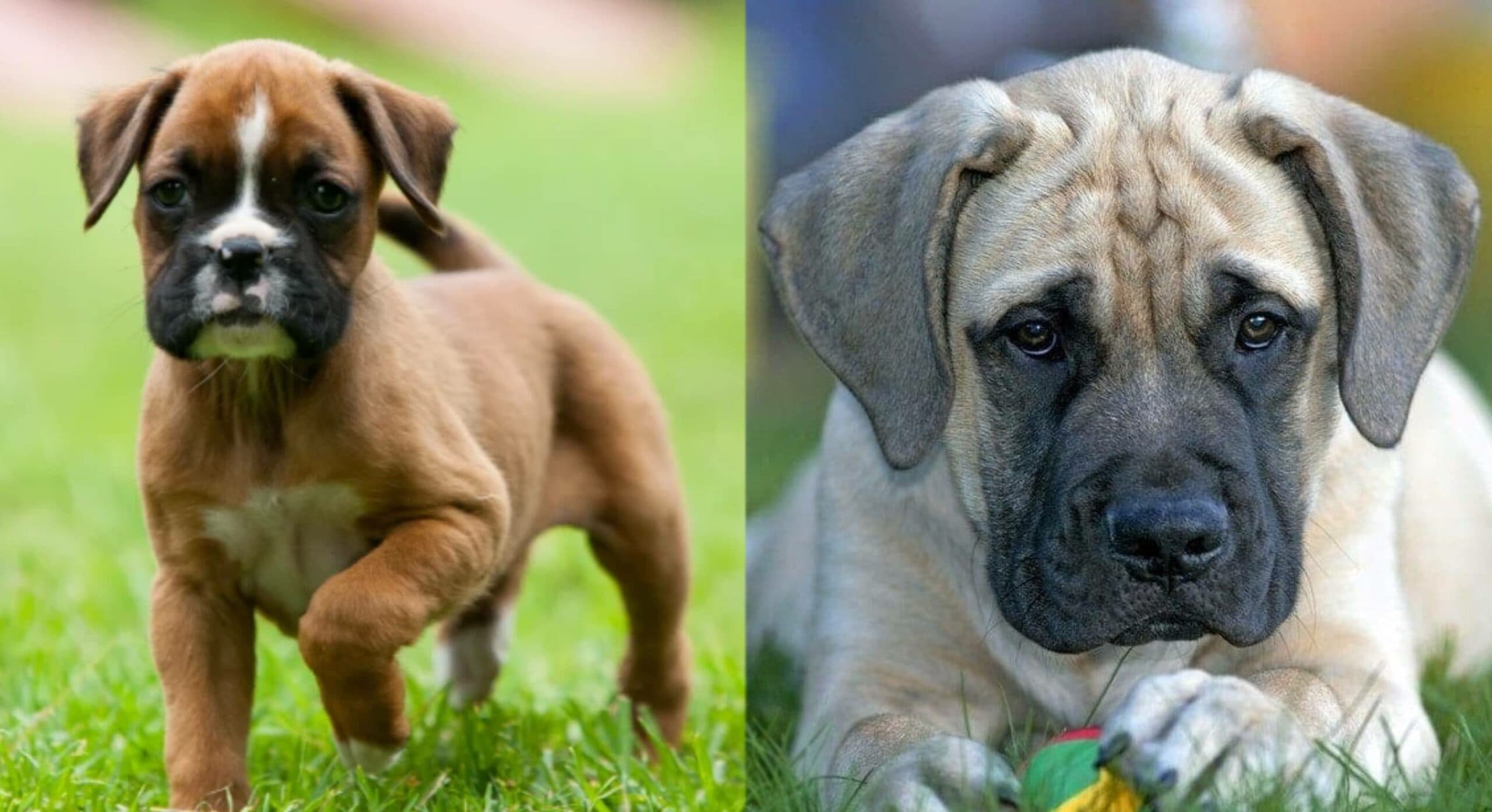
It’s hard to see a litter of these adorable puppies and not want to take a Boxmas or even two home with you. However, you need to make sure that you’re ready for that commitment, as a puppy can be a handful, and a large puppy can be an even bigger one.
Boxmas Puppies tend to have endless energy and need a family who can keep up with them in the energy department. The dogs are very protective of their families, and though they’re cute when they are tiny puppies, it’s not as cute when your 100-pound dog growls at or pounces on a person it thinks is a threat, so you need to train and socialize your Boxmas at an early age.
They’re massive canines, and starting your puppy out on the right food and exercise is crucial for the dog’s growing joints. Short walks are best for your puppy, but that will change as the dog gets older. It’s best not to let your puppy jump from higher heights since it could harm their joints.
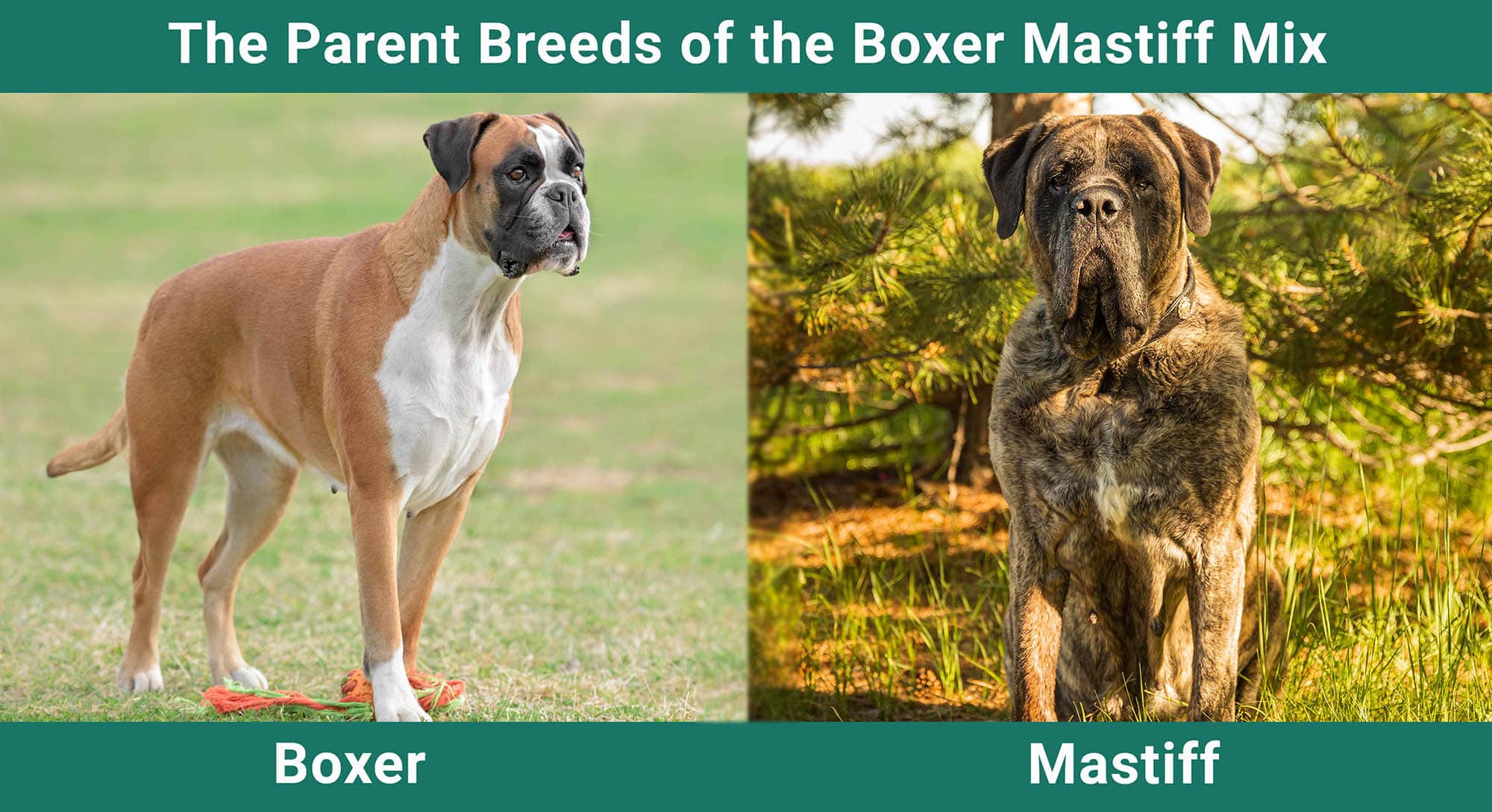
Temperament & Intelligence of the Boxer Mastiff 🧠
The Mastiff and Boxer have amazing histories filled with stories where they are fighting for and guarding their pet parents. However, both breeds make great family pets as well. Since the parents have similar traits, it’s no wonder that the Boxmas is also gentle, loving, and affectionate.
You can expect your furry friend to be fun-loving with just a bit of silliness due to its Boxer parent. Even though the Boxmas is a large breed, they love to play, so make sure you have time to romp in the yard with your canine friend.
However, the breed’s size causes them to tire out faster than smaller, faster dogs. This also means that once your Boxmas is tuckered out, it’ll have no problem curling up on the couch next to you.
Even if the dog is sleeping, it’ll still be looking for anything that could harm its pet parents. They are protective dogs, so you must socialize and train them early. The Boxer Mastiff mix is also intelligent, which means they will enjoy training sessions quite a bit.
You’ll want to avoid too much physical activity as your pup grows into adulthood, so look for plenty of toys and puzzles to keep your dog mentally sharp as it grows. You don’t have to worry about leaving your Mastiff Boxer by itself for a little while, as long as the dog has been exercised properly beforehand.
Are These Dogs Good for Families? 👪
The Boxmas will make an excellent pet for a family but is not recommended for beginners, as you need to be experienced and confident to handle them. There are a few things that you should keep in mind if you have a family and are considering adopting a Boxmas.
Since they are kind, loving, and gentle, they do great with children, but by the same token, the sheer size of the mixed breed can become a threat if they aren’t properly trained and socialized. It’s best always to supervise your Boxmas when playing with the children so that the dog doesn’t get excited and knock the little ones over.
It will take extensive training to make sure your Boxmas accepts visitors into your home. They are a large intimidating breed, which could scare some visitors, especially children. You want to make sure that your Boxmas isn’t going to protect their family to the point where visitors feel unwelcome in your home.
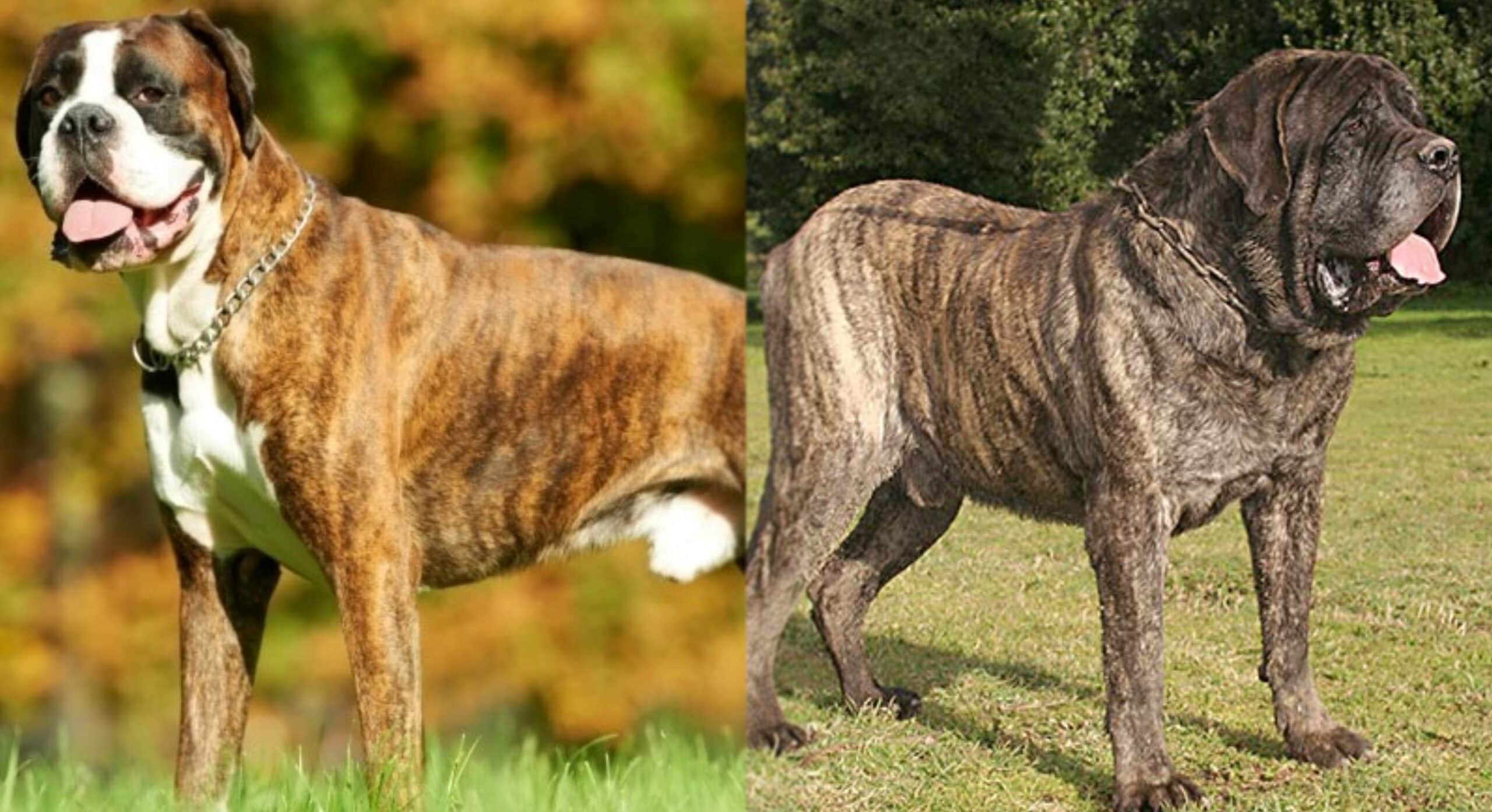
Does This Breed Get Along with Other Pets? 🐶 😽
Boxmas dogs are sweet and loving and should generally get along fine with other pets in the household. It’s important to note that the Boxer parent sometimes gets nervous around dogs that are the same sex as it is, so this might be inherited by your Boxmas.
If you don’t introduce the dogs in the correct manner, it could lead to your Boxmas becoming aggressive out of fear. When introducing your Boxmas to other pets, do it slowly, and don’t just throw them together. You should also always have a place where both animals can retreat to calm down and be alone if they need to. It’s best to socialize your Boxmas by taking it to the dog park or walking around the neighborhood as a puppy, so the dog can get used to other pets.

Things to Know When Owning a Boxer Mastiff:
When you add a Boxer Mastiff mix to your home, you need to know there’s more to it than purchasing your puppy and bringing it home. It’s a huge decision that requires money, time, patience, and love to pull off. So, before you decide to give a Boxmas a forever home with you and your family, there are a few other things you must consider.
Food & Diet Requirements 🦴
As a big dog, your Boxmas will need to be fed approximately 4 cups of protein-filled kibble daily. This will be a greater amount of food than you would feed the average Boxer, but you have to remember that the dog is also mixed with a Mastiff.
You also need to be aware that the Boxmas will eat whenever you let it, so keep your food under lock and key when it’s not mealtime, or you might come in to find your dog food bag ripped to shreds. You want high-quality puppy food full of protein to help your puppy grow. The food should be designed specifically for giant breeds and contain plenty of calcium and phosphorus. These ingredients ensure that your puppy’s joints are strong as they grow.
It’s best to avoid dog foods with a ton of calories, fat, and a lower percentage of protein so your puppy doesn’t grow too fast and become obese. Your vet can tell you if your puppy is developing at the rate it should and recommend a diet if it is over or underweight.
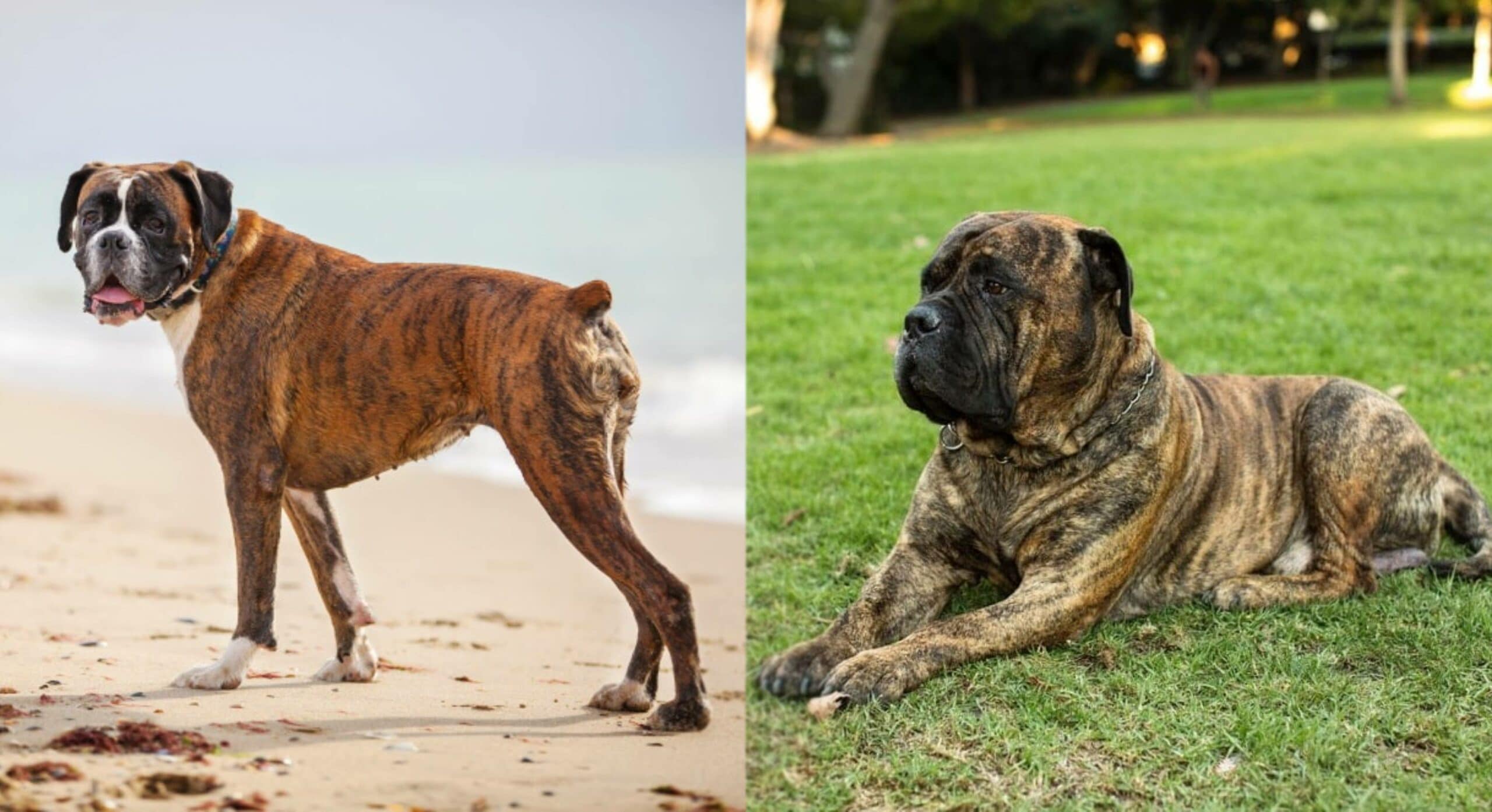
Exercise 🐕
You’ll find out quickly that your puppy is exuberant and energetic. The dog will love nothing more than running in the yard with you. However, you want to take it easy on exercising as your puppy grows into adulthood. If you cannot give the dog the exercise time it needs, the Boxmas might not be the best pet for you.
Once your dog is older, it will need at least 60 minutes of exercise daily, or it can become bored and destructive. Some examples of good exercise for your Boxmas include playing Frisbee, fetch, agility classes, and a run in the dog park every day.
Training 🎾
Boxers and Mastiffs have great intelligence and an excellent work ethic. Although they’re smart, they may be too willful for first-time owners. Boxers and Mastiffs can have stubborn streaks, and a Boxmass requires a trainer who’s patient and respectful of the dog’s abilities. As we said earlier, the dog’s natural instinct is to guard and protect its family, so the breed needs to be trained and socialized with a firm hand early on to ensure it will listen when you tell it to stop. You can enroll your dog in classes that train puppies, as it helps to have a professional trainer to help you meet your goals with your Boxmas.
Grooming ✂️
The good news about your Boxmas Puppy is that it has a short coat, so it doesn’t require much grooming. Brushing your dog once a week should keep it from shedding all over your furniture and home. Seasonal heavy shedding occurs twice a year; during that time, you’ll want to brush your pet two or three times a week.
Also, if your Boxmas inherits a head that is shaped like its Mastiff parent, you can also expect to deal with quite a bit of drool. You should try brushing your dog’s teeth once or twice a week and always check their ears when grooming them. Cutting the dog’s nails once a month should be sufficient, but it’s also a good idea to check them every time you groom your pet to ensure the claws and pads are healthy.
Health and Conditions 🏥
While many pet owners don’t realize it, mixed-breed dogs are usually healthier than their purebred parents. However, there is always the chance that your Boxmas could inherit conditions that the Boxer and Mastiff parents are prone to. This doesn’t mean that your Boxmas will have health issues, but it’s best to be on the lookout for the conditions below.
- Eye problems
- Thyroid deficiencies
- Hip dysplasia
- Brachycephalic syndrome
- Heart disease
- Kidney disease
- Wobbler syndrome
- Elbow dysplasia
- Degenerative myelopathy
- Cystinuria
The best way to maintain your pet’s health is to keep regular checkups with your vet so that these conditions can be caught early on and treated promptly.
Male vs. Female
While there are differences between males and females, it’s essential to remember that every dog is different. The dog’s personality has very little to do with gender and a lot to do with how the dog is raised.
However, we’ve mentioned that Boxers don’t get along well with members of the same sex, and your Boxmas might not either. So, if you decide, for instance, to adopt a male dog, make sure if you adopt another dog that it’s a female.
Male Boxmas Dogs are larger than the females, and the females are more independent. Remember that some behavioral problems with pets can be sorted out by spaying and neutering your pets.
3 Little-Known Facts About the Boxer Mastiff
There are quite a few unique facts about Boxers, Mastiffs, and the Boxer Mastiff Mix. We’ll give you a few of the most interesting below.
1. Mastiffs May Have Come Over on the Mayflower
While your Boxmas was probably bred in the United States, the Mastiff is said to have come over on the Mayflower. Records are quite scarce about that time, but it’s thought that the pilgrims had a Mastiff and a Spaniel with them when they landed at Plymouth Rock. However, the most verified account of English Mastiffs coming to the United States is when the importation of the breed started in the late 1800s.
2. Boxers Were the Breed of Choice for Some Movie Stars
Boxers are a loving breed, and a few celebrities thought so too. In fact, the Boxer was the pet of choice for Humphrey Bogart and Lauren Bacall. They received their first Boxer pet as a wedding present. His name was Harvey, and he was in many of their publicity shots. They eventually adopted two more Boxers named George and Baby.
3. Mastiffs and Boxers Were War Dogs
While the Boxer is more of a lover than a fighter, both parent breeds of the Boxmas served as war dogs. Boxers were used as police dogs, cattle dogs, guide dogs, watchdogs, and used as war dogs in both World Wars.
The Old English Mastiff was used in England in Medieval times as a hunter and watchdog. After assisting English soldiers in the Second World War, there were said to be only 14 of the giant pups left in England. Luckily, some Mastiffs were raised in the United States, and the breed continued.

In Conclusion
While the Boxmas isn’t known as well or as popular as some of the other hybrid breed dogs, it’s fair to say that the breed is growing in popularity. The Boxmas is loyal, compassionate, intelligent, and fun-loving.
Boxmas dogs can be protective of their families, and you’ll want to train the puppy very early so that their behavior doesn’t become an issue when the dog is older and larger.
They also need a lot of exercise to keep them happy and healthy, so if you don’t have time to exercise a full-grown Boxmas the way you should, it might not be the best pet for you and your family. However, with their gentle ways, love for children, and otherwise great personalities, the Boxmas will make the perfect pet for an active family looking for a large-breed pet.
Featured Image Credit: (L) Anita Peeples, Unsplash | (R) Joseph Gruber, Shutterstock

